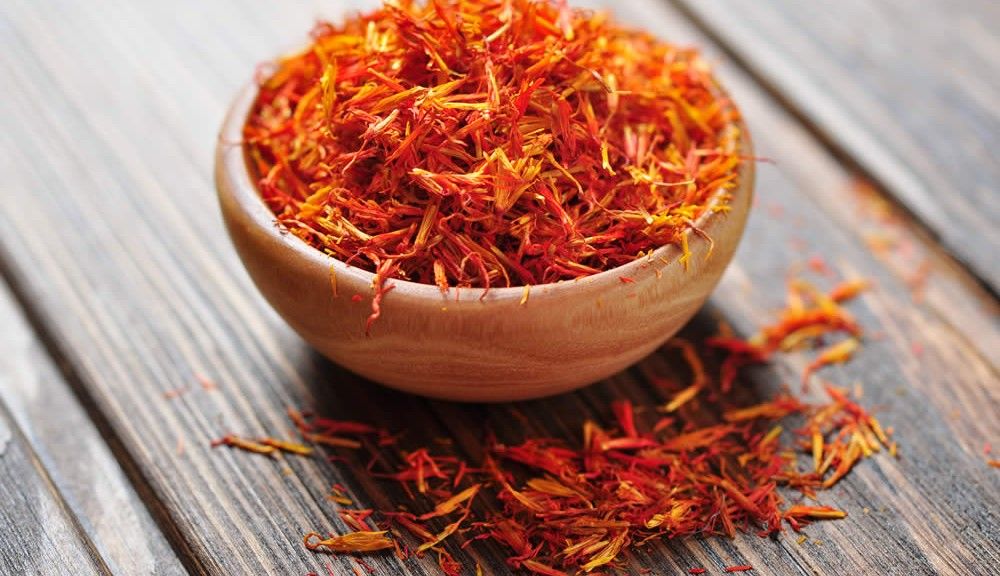
Previous
Simultaneous Support of Heart and Liver Health

Next
New Angle for Tackling Liver Fibrosis
Saffron Valued for Supporting Liver Health
Two studies appear to tout saffron as a means to protect the liver and prevent liver disease from progressing.
Many people identify saffron as the most expensive culinary spice money can buy. While its distinctive, vibrant color lends a unique, earthy, slightly bitter taste to food – saffron’s use as a medicinal substance often goes unrecognized. Certain herbal traditions have known of saffron’s therapeutic properties for centuries; however, modern researchers are just beginning to uncover this herb’s value. When it comes to the millions of Americans managing chronic liver disease, saffron’s capability of maintaining liver health is finally getting the attention it deserves.
About Saffron
Due to its intensive harvesting requirements, saffron is arguably the most expensive herb in the world; approximately three acres of flowers produce one pound of saffron. Saffron refers to the dried stigmas harvested from the fall-flowering plant Crocus sativus, a member of the Iris family.
Several longstanding systems of healing have used saffron as a therapeutic agent to reduce fevers, ease menstrual cramps, calm nerves and help enlargement of the liver. In 1597, the English herbalist John Gerard wrote about saffron as being the remedy for bringing a person back from death’s door. However, large dosages of saffron can be toxic and harbor other potentially harmful effects. Luckily, saffron’s high cost shields most people from this possibility. Even so, a knowledgeable herbalist or physician must be consulted prior to taking saffron for medical purposes.
Recent Study
Researchers at United Arab Emirates University conducted an investigation into the ability of saffron to protect against liver cancer in animal subjects. To be published in an upcoming September 2011 issue of the journal Hepatology, investigators found that that saffron showed considerable strength in inhibiting the development of growths known to cause liver health issues. In their study:
• Scientists placed saffron into the subjects’ food in varying amounts: 75 mg, 150 mg and 300 mg.
• After a two-week head start of saffron supplementation, the researchers injected the subjects with diethylnitrosamine (a substance known to induce liver cancer).
• After administering diethylnitrosamine, the saffron regimen went on for a total of 22 weeks.
• Based on the analysis of several liver health and tumor markers, the subjects receiving saffron were found to have a remarkable advantage over those who did not receive the saffron.
• Subjects given the largest doses of saffron showed the most significant benefits to liver health.
The researchers concluded that their study provided evidence that saffron exerts a significant chemopreventive effect against liver cancer through inhibition of cell proliferation and induction of apoptosis. In addition, they reported that saffron protected the liver from cancer by modulating oxidative damage and suppressing inflammatory response.
Previous Saffron Study
As published in the October 2010 edition of the Saudi Medical Journal, researchers from Saudi Arabia found that saffron exerted a similar action. In their study, researchers from King Khalid University studied the biochemical and molecular liver toxicity induced by aluminum chloride – and the protective role of saffron and honey against such toxicity.
In an animal study, the investigators confirmed that recipients of aluminum chloride had a significant increase in cholesterol levels, triglycerides, GGT, ALT, AST, ALP, lipid peroxidation and presence of hyperglycemia – all measures of liver stress and/or toxicity. They also found that those treated with saffron and honey had improved liver biochemical markers and lowered lipid peroxidation. The researchers concluded that the use of saffron and honey minimized the toxicity of aluminum chloride in the liver by alleviating its disruptive effect on the biochemical and molecular levels.
The two studies above deliver encouraging results about using saffron to support liver health, although both were conducted on animal subjects, not humans. There is not yet enough data to advocate the use of saffron medicinally, nor are there clear guidelines on how to use it safely. It is fine to indulge in saffron-scented rice or use this costly spice sparingly in other recipes. Nonetheless, wait for more intensive clinical trials to be conducted that find saffron to be a safe and valued liver protector.
http://homecooking.about.com/od/foodhistory/a/saffronhistory.htm, Saffron History, Peggy Trowbridge Filippone, Retrieved September 4, 2011, about.com, 2011.
http://medicinalherbinfo.org/herbs/Saffron.html, Saffron, retrieved September 3, 2011, Lynn DeVries, 2011.
http://www.drcutler.com/general-health/saffron-may-help-promote-liver-health-800580622/, Saffron May Promote Liver Health, Retrieved August 29, 2011, Dr. Cutler, 2011.
http://www.naturopathydigest.com/nutrition_herbs/herbs/saffron.php, Saffron (fan hong hua), Retrieved September 2, 2011, Naturopathy Digest, 2011.
http://www.ncbi.nlm.nih.gov/pubmed/20953525, Role of saffron (Crocus sativus L.) and honey syrup on aluminum-induced hepatotoxicity, Shati AA, et al, Retrieved August 29, 2011, Saudi Medical Journal, October 2010.
http://www.ncbi.nlm.nih.gov/pubmed/21607999, Saffron: A potential candidate for a novel anticancer drug against hepatocellular carcinoma, Amin A, et al, Retrieved August 29, 2011, Hepatology, May 2011.







How does 2.5 warfarin effect liver health in 75 year old woman w/1.1 INR/PT?